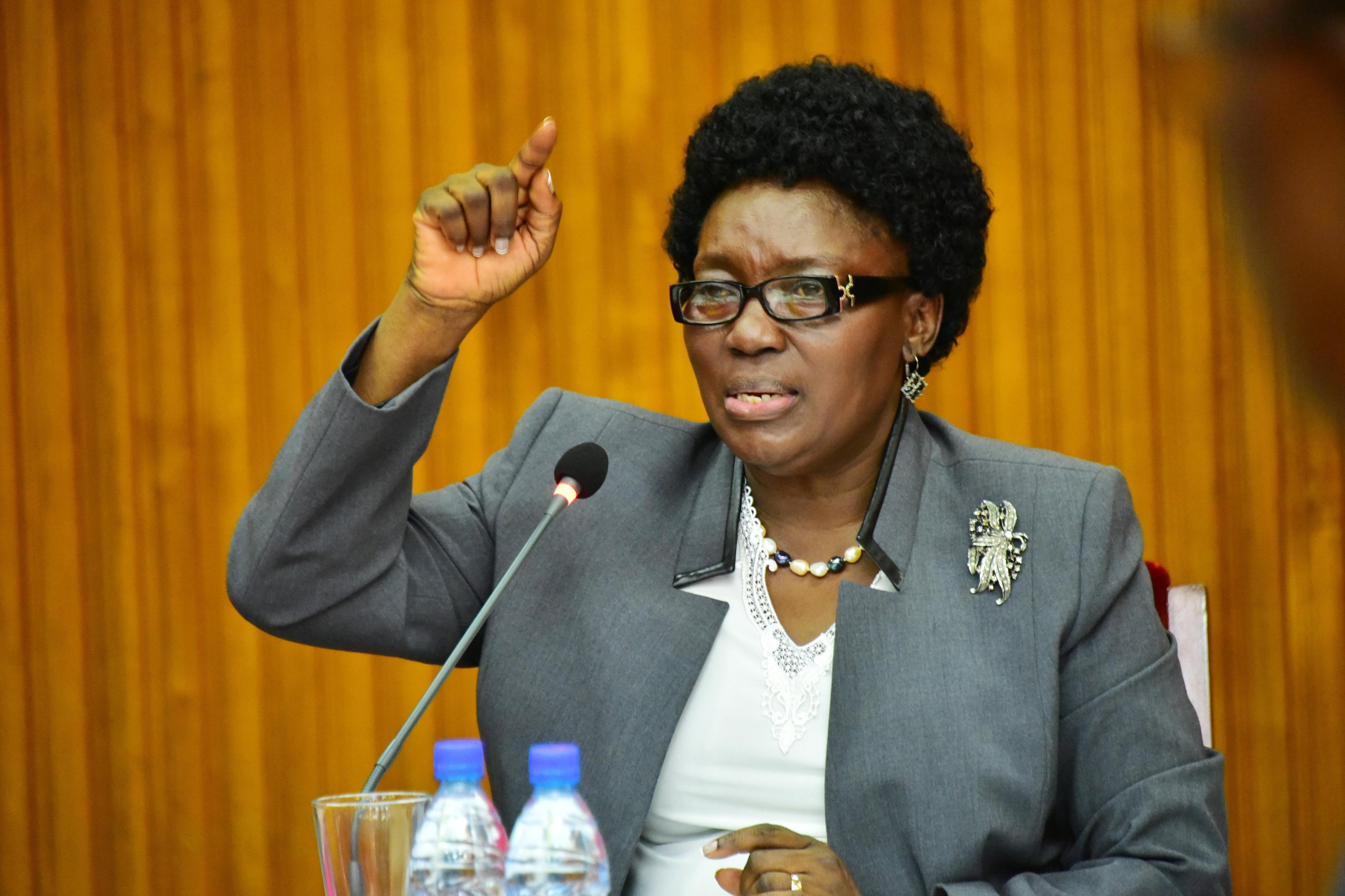Kadaga takes tax harmonisation matters to EA regional extraordinary meeting

Uganda’s Minister for East African Community Affairs, Ms Rebecca Alitwala Kadaga
What you need to know:
- Young people coming from Uganda, get a VAT rated certificate at a lower rate than they’ll get in Kenya or at a higher rate because it is already a common market. So when you don’t harmonize it will give one country an advantage over another. So the non-implementation is hurting some economies while raising others.
Despite the directive by the EAC council of ministers made nearly seven and half years ago, there is little progress made in the harmonisation of domestic taxes as well as the indiscriminate tax incentives.
This is according to an analysis contained in a petition drawn by the National Youth Council (NYC), the EAC Youth Ambassadors platforms and the Youth for Tax Justice Network.
In their petitions which they recently handed to Uganda’s Minister for East African Community Affairs, Ms Rebecca Alitwala Kadaga and the Speaker of the Parliament of Uganda, Ms Anita Annet Among, emphasised the need for regional tax harmonisation and evaluation of tax incentives so far dished out indiscriminately.
The petitions presented by the NYC chairperson Mr Jacob Eyeru further seeks to have parliament adopt a motion that shall grant youth businesses a 2-year tax holiday for business infancy.
“This is line with the EAC council of ministers’ directives of 2014 on tax harmonisation which require tax incentives in the EAC to be given to areas of critical market failures,” Mr Eyeru said.
The harmonisation of tax policies in the region would enable fair competition for investors in the region who would provide jobs for many youths in the common market area of the EAC without prejudice to the tax administration designs of one EAC partner state over another.
Support
After receiving the petition at her office, the First Deputy Prime Minister and the Minister for East African Community Affairs, Ms Rebecca Kadaga, said the future of the youth begins now in terms of preparation. And for that she is willing to help them realise their dream as articulated in their petition.
She said: “When we go to the council’s meeting in June, I will ask for one extra day so that we can complete the issue of young people which I think should be prioritized. So on this one, you can count on me. I am going to follow it up.
She continued: “Then I will study further this position of tax harmonisation because since 2014 to date is a long time. I will bring it up in the extraordinary meeting.”
The implementation of the Directives of the council of Ministers on harmonization of tax incentives will according to the youth leadership provide an opportunity for youth representative bodies to hold the power that be accountable on youth matters such as unemployment.
This is because the responsibilities levied by the directives upon actors within partner states provides unique opportunities to track, place and question partner state tax policies from a youth perspective” reads Mr Eyeru said in a separate interview.
Going by the Youth for Tax Justice Network (YTJN) analysis on tax harmonization, to this day, only the Republics of Uganda and Kenya have complied-and only in part- to the directives. It further became evident in the analysis that insteadmember states within the community are simply maneuvering to outbid each other by offering bigger concessions to investors rather than implement the directive.
Foregone Incentives
Kenya’s 2021 Tax Expenditure Report provides a detailed account of the past four years showing foregone revenues through incentives and exemptions in VAT Tax for expenditures for exempt goods and services amounting up to Kshs82.9million and for Zero Rated goods and services totaling to Kshs151.4million.
In Uganda, the overall tax exemptions analysis of Financial Year 2019/20 shows that a total revenue foregone due to tax expenditures amounted to slightly more than Shs 5trillion.
As a percentage of Gross Domestic Product (GDP), this translated to 3.64 per cent. In FY 2019/20, the largest share of these tax expenditures were registered in international trade taxes (slightly more than Shs2.1tillion) while VAT tax expenditures registered slightly more than Shs1.8trillion and income tax tax-expenditures stood at Shs 1trillion.
“To promote the EAC as a single investment area, the Council of Ministers’ directive provides that there should be a harmonisation of investment incentives,” Mr Allan Murangira Muhereza, the YTJN Team Leader noted in an interview.
He continued: “Although there is a shift toward tax policy coordination for direct taxation, investment incentives are still offered with respect to different industries and there is no harmonization of corporate income taxes.”
The expert analysis also reveals that the Republics of Kenya and Uganda have made publications on the tax expenditures but the assessment of both countries’ tax incentives is focused on the impact on revenue only and not on other relevant market indices like jobs created for the population through the tax expenditures and the potential foregone in the short to medium term in offered incentives.





